Last Updated on December 15, 2022
Africa is a continent with a long and rich history. It is a history that is often overlooked or overshadowed by the stories of other continents. When the stories are told, they are often misconstrued. And Africa is made to look like it has always been barbaric and backward. However, there are many aspects of African history that are worth exploring. One of these is the history of African female warriors. In Africa, there is a long history of powerful women who led armies and empires. These women were often skilled in warfare and politics, and many of them ruled with great skill and wisdom.
Female warriors have played a significant role in African history. They have led powerful armies and empires whose stories are still told in books and under the moonlight. These female warriors and their lives are inspirational, especially now when female rights are constantly being agitated for. Here, we will explore the stories of some of the most famous African female warriors. We hope that their stories will inspire you as much as they have inspired us!
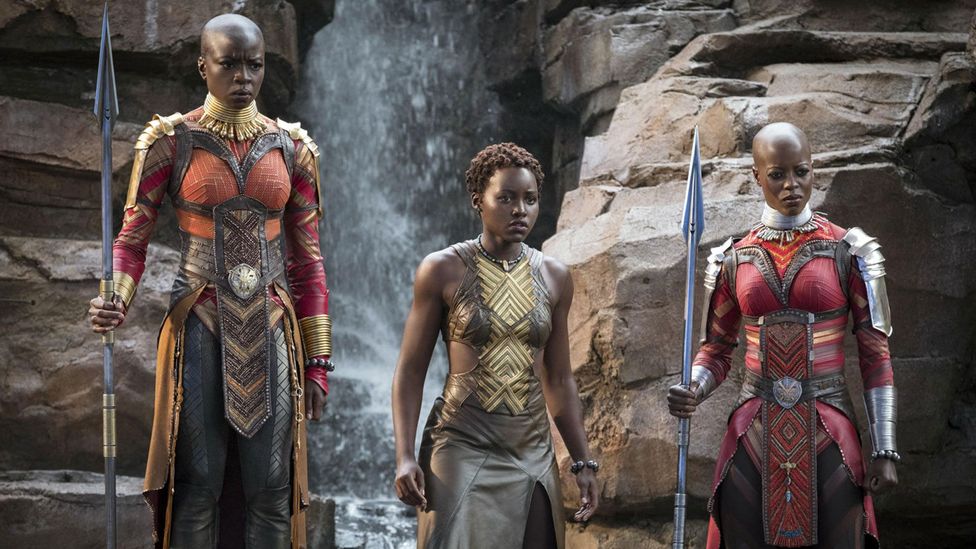
The Role of the Female Warriors in Africa
Throughout Africa’s history, there have been many strong and powerful female warriors. These women have played a vital role in shaping the course of the continent’s history. The role of the female warrior in Africa has been long overshadowed by their male counterparts. However, recent historical research has begun to shed light on the significant contributions made by women in African history.
From the ancient Empires of Kush and Aksum to the more recent Kingdom of Dahomey, women have played a vital role in the military history of Africa. In many cases, they were equal to or even outnumbered their male counterparts in ranks.
Some of the most famous female warriors in Africa include Queen Amina of Zaria, Queen Nzinga of Angola, and Queen Mother Carrie Thomas of the Gola people. These women were all skilled military leaders who fought against their oppressors and fought for the freedom of their people.
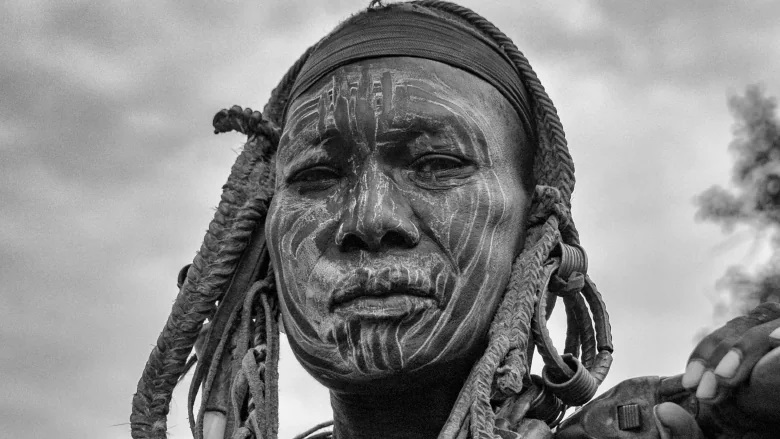
In recent years, there has been a renewed interest in the role of the female warrior in Africa. With the continent’s history of colonization and oppression, many African women are now looking to their ancestors for inspiration and strength. These women are now taking up arms and fighting for the liberation of their people.
Read: 10 Powerful Women With Groundbreaking Roles in History
Female Warriors Who Led African Armies and Empires
Below are some of the African female warriors that led African armies and empires. Interestingly, some of them won great wars and fought with their lives for their people, and their legacy still lives on to date.
1. Queen Amina of Zaria
Amina also referred to as the warrior queen, expanded the Hausa population’s range in north Africa. She was born in Kaduna State, Nigeria, in the year 1533 in Zazzau, which is today’s city of Zaria. King Nikatau, the 22nd king of Zazzau, and Queen Bakwa Turunku were her parents. Karama, Amina’s younger brother, ascended the throne after both of their parents passed away in or about 1566.
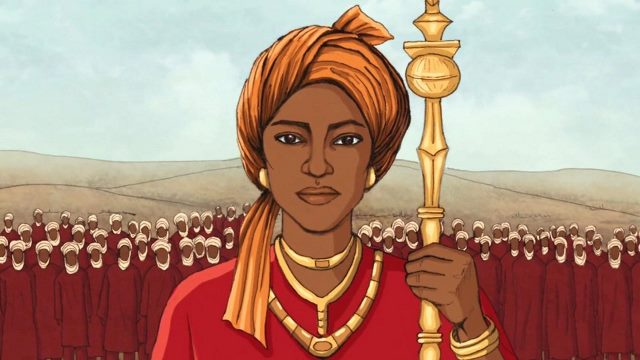
Amina, on the other hand, decided to enlist in the military. She practiced sharpening her warrior abilities and soon won the respect and confidence of her male contemporaries.
After her brother’s death and her coronation as queen, her first military mission was conducted only a few months later. She led 20,000 men in several conquests that followed. Due to the growth of trade routes and the availability of resources from conquered nations as a result of her military triumphs, Zazzau amassed enormous wealth.
The building of protective walls surrounding Zazzau, which came to be known as “Amina’s walls,” was one of her numerous innovations. She fought and grew her empire for the rest of her 34-year rule. And till today, in Nigeria, she is still being referenced as “Amina, daughter of Nikatau, a woman as capable as a man that was able to lead men to war.”
2. Queen Amanirenas, Circa 40 B.C.
From 40 B.C. through 10 B.C., Queen Amanirenas ruled the Kingdom of Kush in the Nubian area, which is now Sudan. Amanirenas launched an ambush on the Romans when emperor Augustus of Rome overthrew the nearby Egyptian state in 30 B.C. with intentions of advancing on Kush later that year.
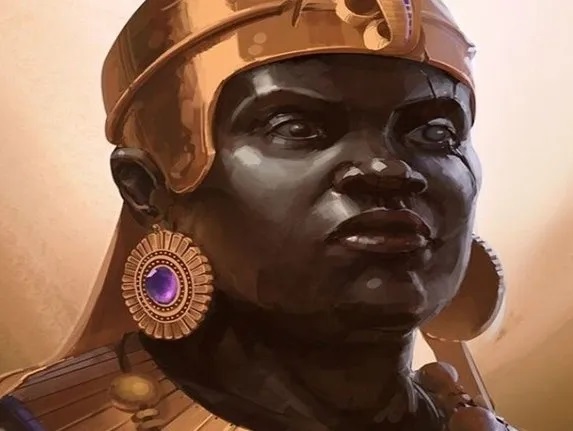
Amanirenas successfully conquered three Roman-ruled cities while commanding an army of 30,000 from the front lines. But it didn’t take long for Rome to strike back, conquering Kush, destroying the Kingdom’s capital, and enslaving thousands of people. Five years after the war’s start, in 24 B.C., they launched negotiations to put an end to it. But this only came after years of ferocious warfare and substantial deaths on both sides. However, the fighting came to an end.
Unlike many of her neighbors, Queen Amanirenas successfully prevented Roman invasion, never giving up a sizable portion of her territory or levying tribute. And as the Nubian queen who overthrew the Romans, Amanirenas is respected across the Nile Valley and beyond.
Read: The 7 Most Influential African Empires
3. Queen Nzinga Mbande – 1583-1663
Queen Nzinga Mbande ruled the Mbundu people in what is present-day Angola and was a smart leader and military strategist.
Portugal had created a colony close to Mbundu country to increase the slave trade in response to the rising need for slave labor. After her brother, the previous monarch killed himself in 1626 due to growing Portuguese aggression, Nzinga was crowned queen. But prior to becoming queen, Nzinga met with the Portuguese to discuss peace negotiations at her brother’s request.
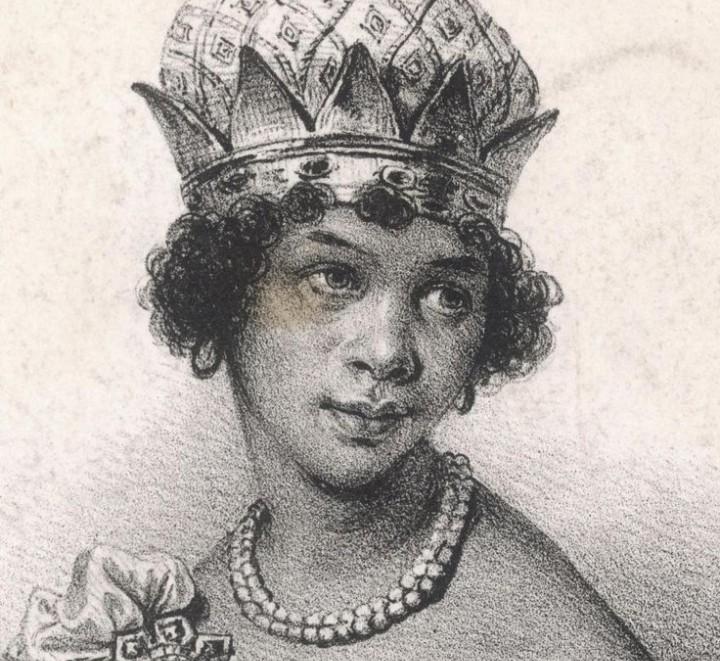
In 1622, she built a strategic partnership with Portugal. Nzinga’s agreement with the Portuguese allowed her to fight enemy tribes to provide slaves for Portugal in exchange for weapons and an agreement that the Portuguese would stop committing slave raids on the Mbundu people. This was done in response to attacks from rival African aggressors looking to capture people for the slave trade. It was a smart move to protect her people.
However, Portugal had broken its agreement by the time Nziga was crowned queen in 1626. Nzinga resisted the Portuguese. She then led an army against the Portuguese in 1627 after forming a transient alliance with their adversaries, the Dutch.
4. The Dahomey Amazons
The Dahomey Amazons were an all-female military unit in the Kingdom of Dahomey, modern-day Benin. They were named after the race of female warriors from Greek mythology. The Amazons, who are thought to have come together in the middle or late 1600s, were renowned for their bravery in battle and disregard for suffering. They also had significant sociopolitical control over their country.
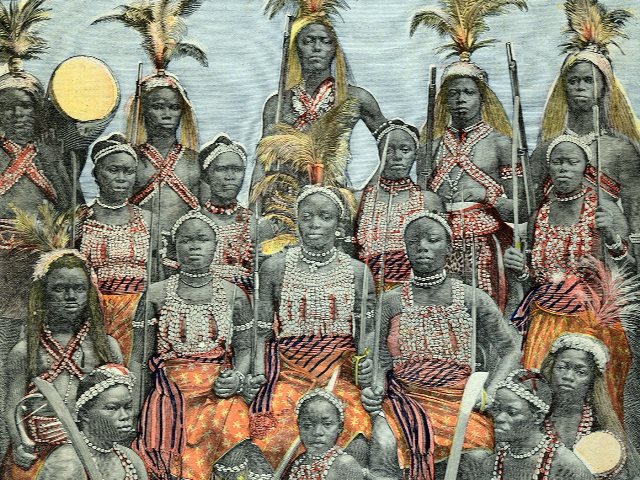
Occasionally, the Amazons worked with European colonialists to defend and enrich their own kingdom by trading captured enemies from local conflicts for supplies and weapons. They numbered between 1,000 and 6,000 women by the middle of the 1800s.
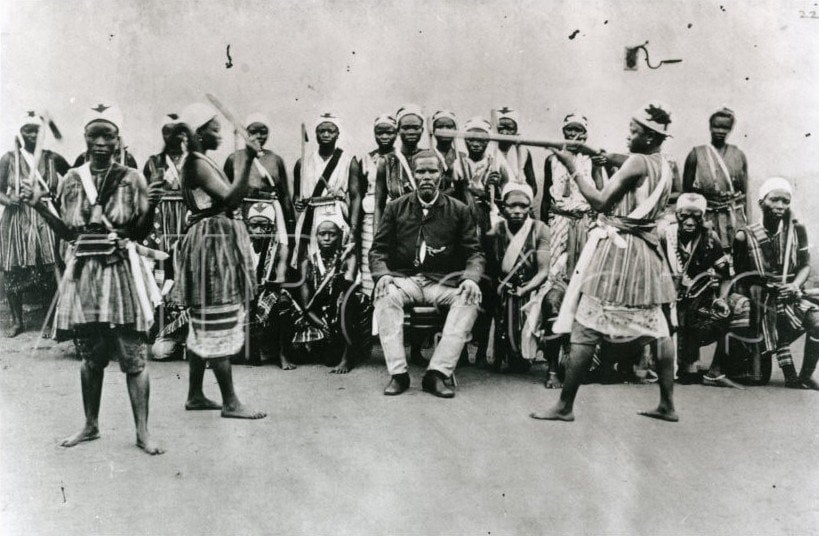
In 1892, when the French invaded Dahomey, the Amazons mounted a fierce defense. The French soldiers praised them for their “incredible courage and audacity” thereafter. The Amazons and Europeans engaged in fierce combat for a while, but the African female warriors were finally outnumbered and outgunned, and within a few years, they had been entirely wiped over.
5. Queen Moremi of Ile-Ife
Offa, a city in southwest Nigeria, is where Queen Moremi Ajasoro was born. She gained notoriety for the bravery and diplomacy with which she freed the inhabitants of Ile-Ife from slavery. At the time, she was married to Oranmiyan, the son of Oduduwa.
A particular group known as the “people of the forest” conquered and oppressed the inhabitants of Ile-Ife in the 12th century. She vowed to the river spirit known as “Esimirin” that if she could learn the secret of her oppressors, she would do all necessary to save her people.

In a bid to learn the secrets of her people’s oppressors, Queen Moremi posed as someone else and was captured by their oppressors. But as a result of her beauty and tact, she finally got to marry the group’s leader. From there, she went about strategically unraveling important secrets to defeat them. When she finally succeeded, her people were set free.
She made good on her promise by going back to her people and the river spirit. Olurogbo, Moremi’s only son, was, unfortunately, what the spirit needed. She followed her word and gave up her one and only son. The entire Ile-Ife population was pained by this sacrifice.
To date, the people of Ile-Ife still consider themselves to be Queen Moremi’s “eternal children.” She has been honored with the tallest statue in Nigeria. Also, in recognition of her selfless deed, they also commemorate the Edi holiday. The Moremi statue, also known as the “Queen Moremi Statue of Liberty,” is the tallest statue in Nigeria and the fourth largest in all of Africa.
6. Yaa Asantewaa (1840 – 1921)
Yaa Asantewaa ruled the affluent Ashanti Empire, also known as Asante, which is present-day Ghana. The Golden Stool, the most precious item in the empire, was under her official protection as queen. The stool stood in for the imperial throne, which was made of solid gold and was said to house the nation’s soul. Asantewaa rejected British demands to hand over the holy artifact when they invaded in 1886. She instead commanded an army to fight them.
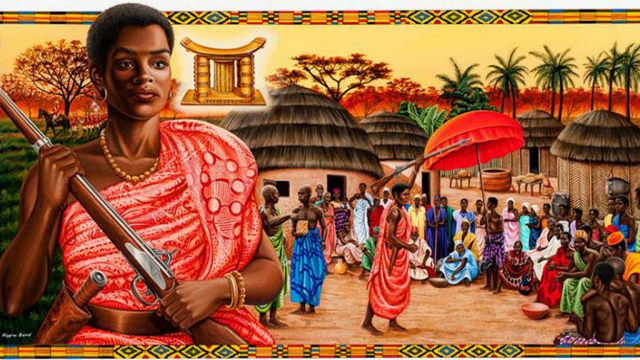
7. Queen Nanny
The Jamaican Maroons, a group of formerly enslaved Africans who fought the British for their independence, were led by Queen Nanny. Nanny was taken from Ghana as a child and sold into slavery in Jamaica. She escaped and sought safety in the island’s Blue Mountain region with other freed slaves.
She rose to the position of commander of the Maroon community by 1720 as a result of her outstanding leadership and military abilities. From there, she started to teach her people guerilla warfare.
Over 800 slaves were freed thanks to Queen Nanny’s leadership of the Maroons in scores of victorious fights. Her clever strategies enabled the Maroons to ambush the highly armed British and crush their ranks.
Before you go…
Hey, thank you for reading this blog to the end. I hope it was helpful. Let me tell you a little bit about Nicholas Idoko Technologies. We help businesses and companies build an online presence by developing web, mobile, desktop, and blockchain applications.
As a company, we work with your budget in developing your ideas and projects beautifully and elegantly as well as participate in the growth of your business. We do a lot of freelance work in various sectors, such as blockchain, booking, e-commerce, education, online games, voting, and payments. Our ability to provide the needed resources to help clients develop their software packages for their targeted audience on schedule is unmatched.
Be sure to contact us if you need our services! We are readily available.











